"Luck doesn't work without action"
Support for IDPs in Dnipro; and I unload an aid van while scruffy
I’m on my way to Kharkiv to liaise with Sashko for Freefilmers’ trip delivering portable stoves to a damaged village, and have stopped off at the city of Dnipro for a few days. On Monday I met up with Max Maslennikov, a former IT specialist who started the Reconstruction Ukraine fund, and who is a keen reader of my blog – it’s an amazing compliment when Ukrainians say this – and an absolute powerhouse. “Luck doesn’t work without action” is his social media strapline.
I helped with unloading an aid lorry at his warehouse, and he took me for a look at one of the hostels his organisation runs for IDPs in Dnipro.
The Hostel
As he drove me there, Max filled me in on how Reconstruction Ukraine began, as a simple humanitarian aid organisation: “ We opened a sharing point in a shopping centre, and people were just sharing food and clothes, and we gave them to the huge wave of refugees coming to Dnipro. Because we are surrounded by Kharkiv, Donetsk, Luhansk, Zaporizhzhia, everyone was running to Dnipro and then starting their railway journey to the western part of Ukraine or Europe or wherever.”
“It was the very first months, very shocking months, so we got a lot of support. But the condition was not to use this support for military purposes. We thought, we have to open something for people to stay for a couple of days. We opened the first shelter for 40 people, temporary housing for up to five days, then the second one was for 220 people.”
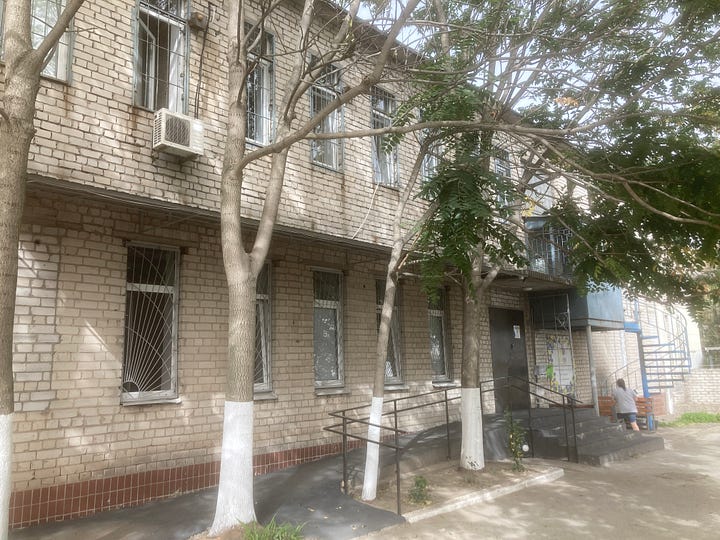
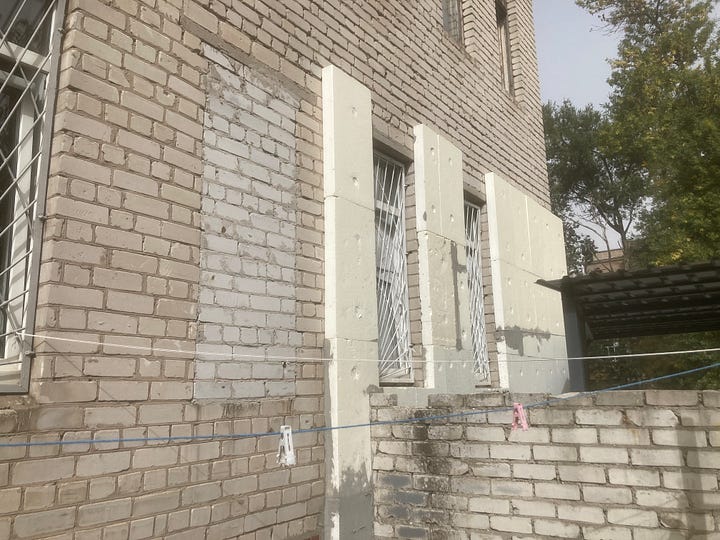
After those early days of panic and confusion, people’s needs changed. “When the big wave of refugees reduced, we saw there was no necessity for these shelters any more… But there was a big problem because the population of Dnipro before the war was around 900,000, and an extra 400,000 arrived. Their houses were destroyed so they had nowhere to go back to.”
“So we started to ask for governmental facilities and to attract some donations to refurbish them, because this was more cost effective than building something. We didn’t even know how many buildings we’d have to build, because not all the refugees were registered so we had problems counting the amount of people – and nobody knew if the Russians would be closer to Dnipro, or in Dnipro soon so there was no sense in building something anyway.
“Now, after two and a half years of full-scale invasion when we can see everything is pretty much stabilised and it’s not easy for them to get to Dnipro, we can think about building something… But this will take years. Where will people go during those years?
“We came up with a showcasing project to show donors how we can solve this problem – for $175 per square metre, which is very cheap. A new building will cost $650 per square metre, so it’s much cheaper… Now we have some problems with rental payments but we have several projects around Dnipro which have the same idea.”
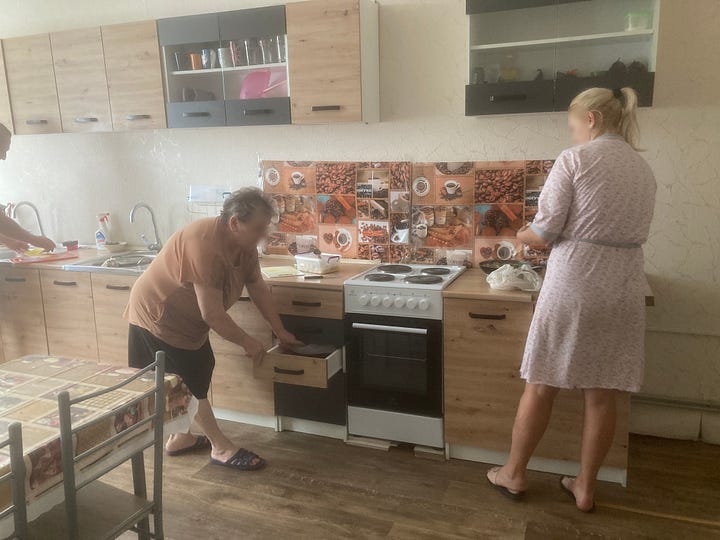
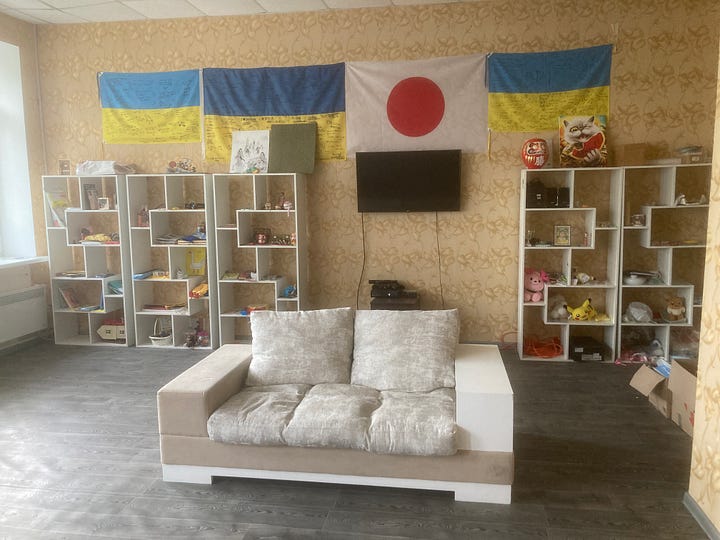
Allocation of funds is often on Max’s mind. While it’s relatively easy to raise money for more obviously compelling needs like medical supplies… “We have problems with donors for rental purposes. We have to pay a thousand euros in rental payments alone each month, so we can provide the facility to people for free. The only payments they make themselves are utilities… But if we don’t make rental payments each month, they [the landlords] will stop the contract and the 80,000 euros invested in this facility will just burn out! It doesn’t make sense.
“The BEARR Trust helped us with rental payments, three or four times. Which was absolutely amazing, because we were able to attract medical support, food, clothes, everything; but not money for rental purposes because everyone says that’s not the priority.
Fortunately, the government is starting to pay attention to this issue. “When we started, there were no legal options for cheap or free rental. But now these options are appearing because we are delivering these messages to government. The government is slow, but reacting.
“When the full-scale invasion started, in the first three months we had 4,800 registrations of new NGOs and charity funds. Most of them have closed but at least half of them are still working. We have a huge increase in civil society, and it’s been mind-changing for us. Civil society will now pay more attention to politics, noticing what’s happening around us, the corruption issue and so on. This is a bad story, but we have a good story inside of this bad story, you know?
And this is the aid lorry. You’ve probably seen a lot of these in NGO photographs, accompanied by burly lads smiling and giving the thumbs up by some signage that indicates where they are, usually Kyiv, Lviv or even somewhere in Poland. But then what happens?
Then, things get complicated. Often the aid lorries go no further than those places. Foreign volunteers in Ukraine often have a lot to say on this subject, including accounts of warehouses full of clothes and (spoiling) food that goes no further because in order to release it international aid agencies require a level of paperwork and accountabily that is simply not feasible for people who are busy trying to beat off the Russian army, but that’s another post.
Fortunately the above lorry - from the UK - made it to Dnipro with nothing worse than the contents getting a bit jumbled up, which is inevitable when you have loose second-hand items. It contained medical aid, half of it in pallets securely bound in plastic sheeting, but the other half a tumble of beds, walking frames, incubators and other furniture. It took about three hours to unload the contents and store it in Reconstruction Ukraine’s small warehouse.
I participated in this process, which was not entirely socially acceptable, and produced mildly resistant observations from one of the local male volunteers, such as ‘You’re a woman’ (I replied that I know this) and ‘This is heavy’ (it truly was not; most of the boxes contained light items such as syringes or blister packs). Gender roles are more regimented in Ukraine. But I invoked Ignorant Foreigner Privilege and continued hefting boxes rather than stand around gawping. Nobody stopped me.
Meanwhile the two Ukrainian women present - Veronika of the ‘1+1 is No Longer Alone’ fund and Max’s partner Alina - got busy inspecting the supplies. And discovering an all-too common problem.
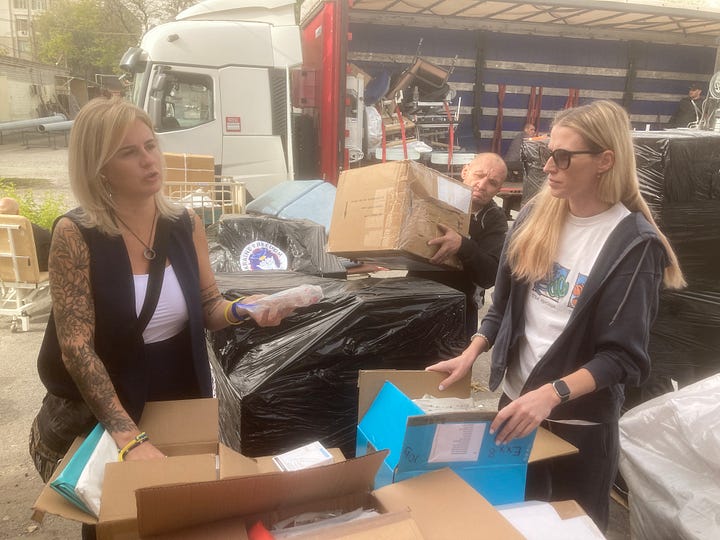
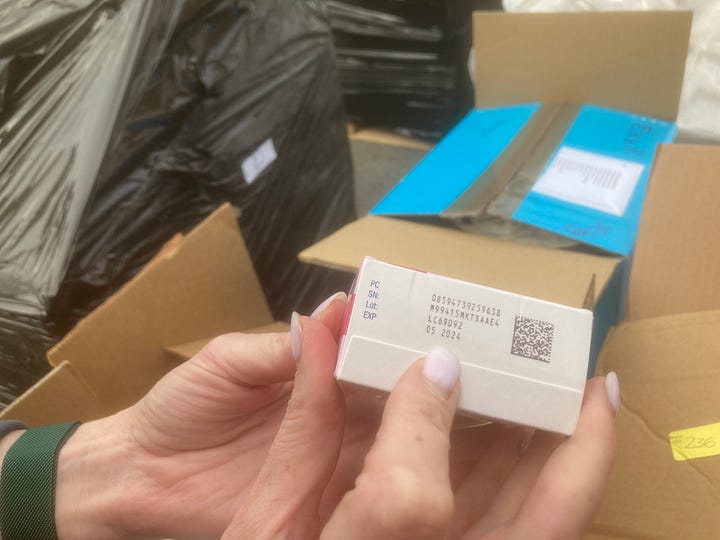
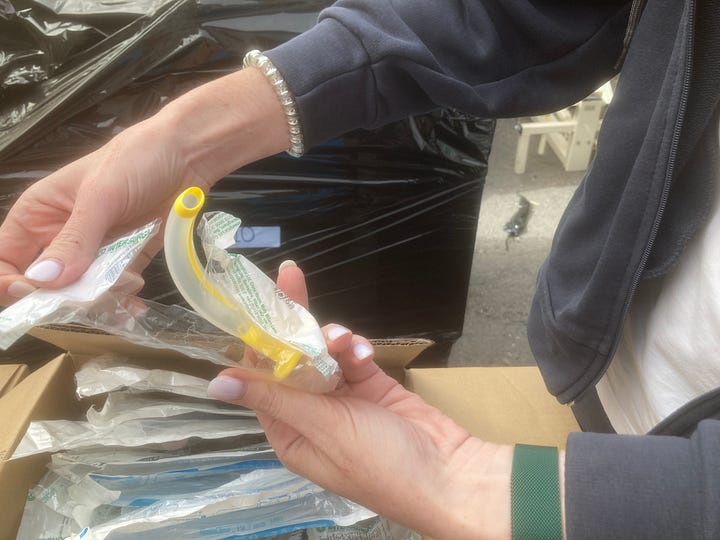
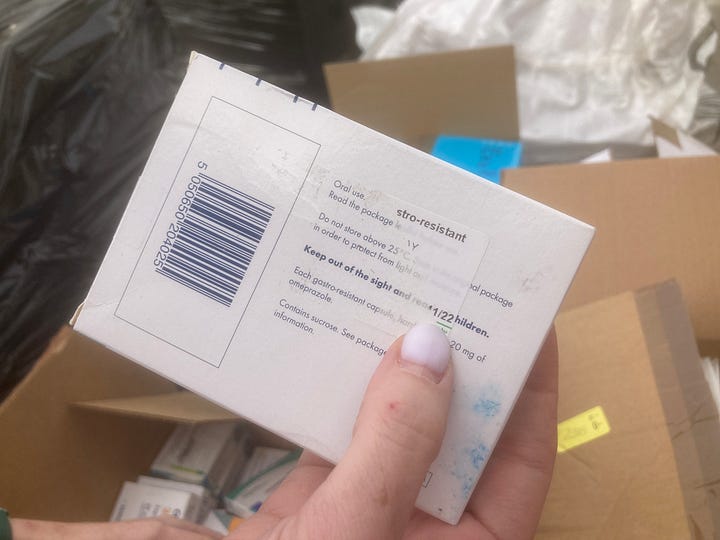
Some donors think out-of-date medication is better than no medication, and while I know anecdotally that frontline facilities will sometimes use medication that’s up to six months out of date, hospitals have to maintain standards. Max explained, “We are receiving this medication officially so we have to sign papers. Then when we supply it to someone we have to sign papers that we have given that aid to medical entities. But they are unable to sign for any medications which are out of date. So now this out-of-date aid will stay in my warehouse and I will have to recycle it somehow.” In other words, this kind of ‘aid’ is not only useless, it’s a burden. I asked how often Max receives out-of-date medication. “We don’t usually work with medical aid so not very often, but it happens time after time.”
Fortunately, the hospital beds and machines are probably useable: “Hospital employees have to come to the warehouse and check if they will take those items. Whether they will be useful to them. I think that most of them are good enough.”
But there was an issue with this aid too. “When someone supplies the aid, it has an estimated price, which shouldn’t be higher than the market price. We have, for example, these two incubators, which cost around two million hryvnias according to the papers. But the market price is five or six thousand. hryvnias. So the estimated price is higher than the market price. It means that medical entities will not be able to accept it because the tax office could have some issues.”
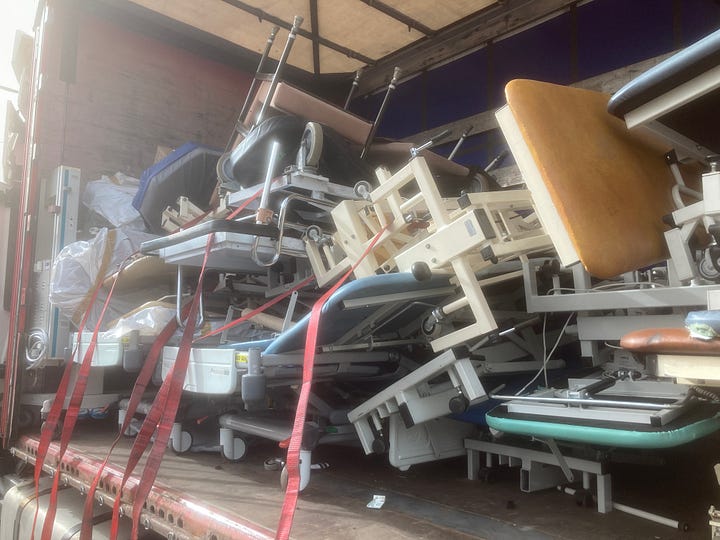
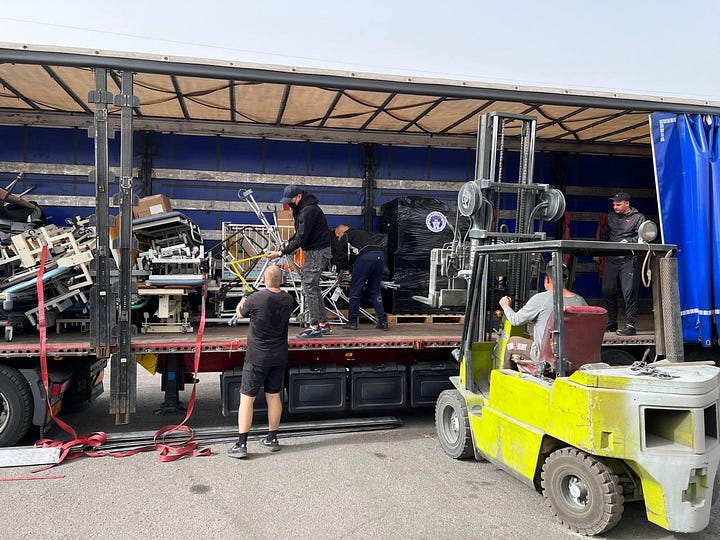
And does that happen often? “This is the first one [load], actually, which has an overestimated price. Now we’re going to re-estimate everything and bring the prices into accord with the market prices. Because from the supplier’s side the medical specialist was estimating these items as new, but they are not.”
Fortunately Max was able to get on the phone to the donors to address that one, so hopefully the incubators and other equipment will end up where it’s needed. Once the estimation issue is resolved, this aid is going partly to the front line, partly to Kherson, and the rest will remain in Dnipro.
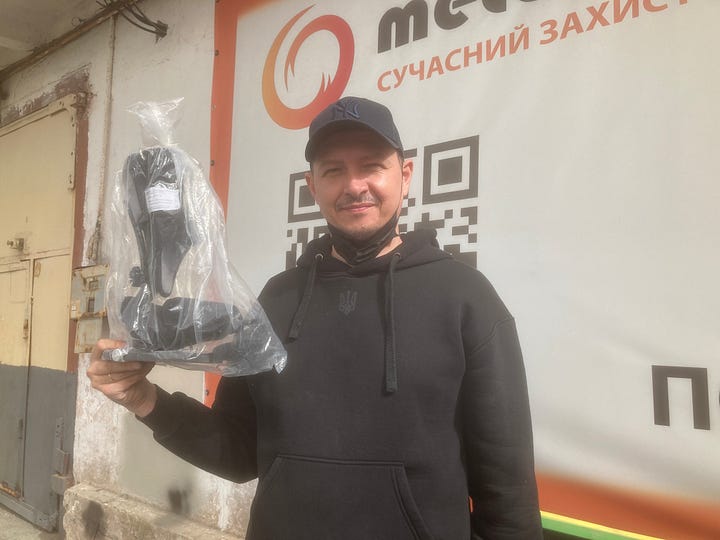
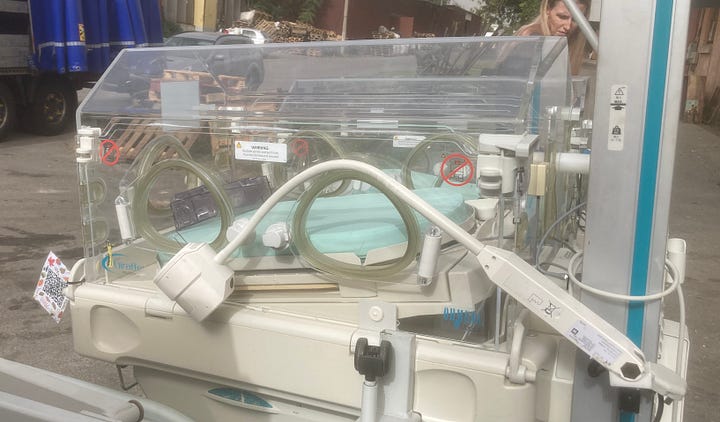
Max was undaunted by the latest round of obstacles. After all, he’s been making things up as he goes along for years, with great success. “[When the war began] we started just doing what we saw was the right thing to do. We didn’t know how to do it right, how to do it legally correctly. The focus was just to act, to help. Even two and a half years in we have something new… For example we have this aid supply and we see we have overestimated prices, which is the first time this has happened with us.
But we know we’re gonna have problems, so we prefer to act even though we will make many mistakes. If we’re afraid of mistakes, we’ll do nothing.”
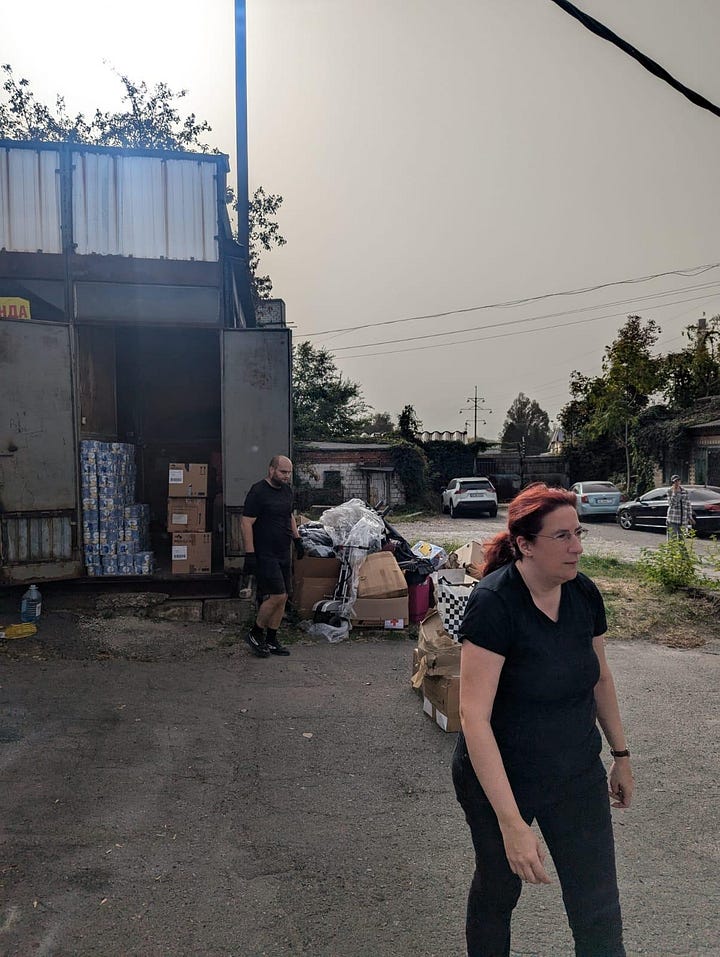
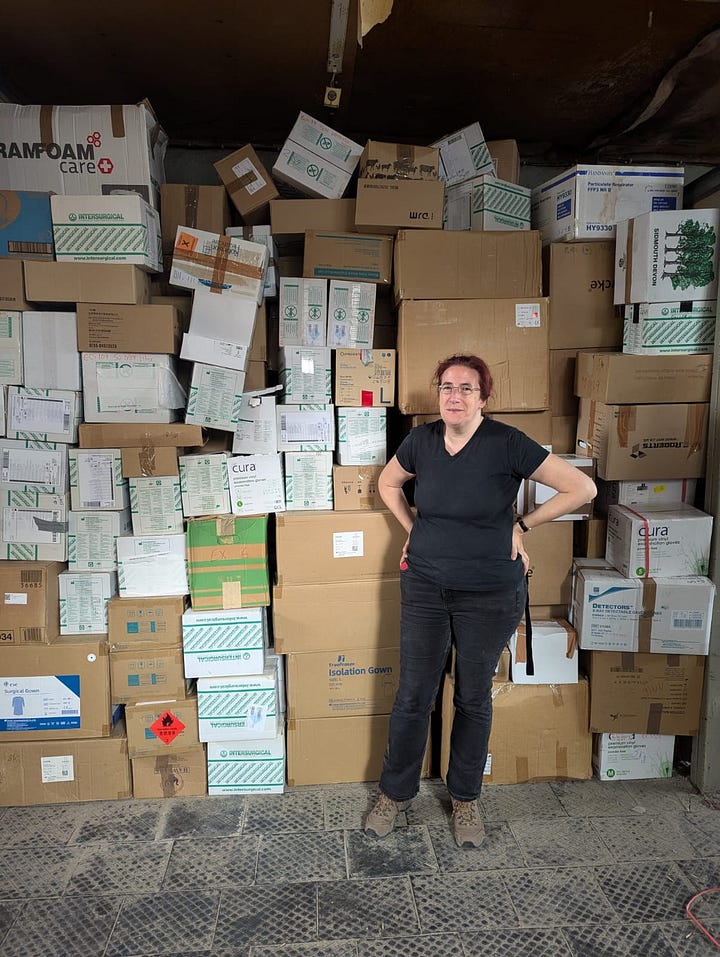






Anna, you are our hero! You work so hard. My only excuse is I am 84 years old not to be there. I hope with all the help of such good people Ukraine will be free. I am not religious but pray for my husbands relatives in Kharkiv. It such a shame to send old medicine to Ukraine and feel as a benefactor instead of criminal. Thank you for your work there.
I hope you will compile all your fascinating reports into book form. Brilliant reporting!